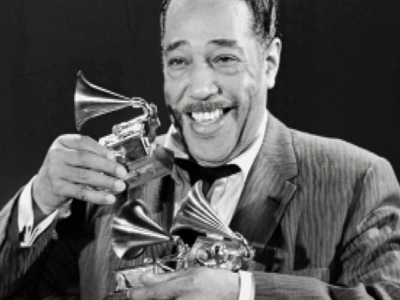From 2003:
If absolutely necessary, I can manage 2,500 polished words between sunrise and bedtime. In the immortal words of James Burnham, “If there’s no alternative, there’s no problem.” But I try not to write that much in a single day. It’s not exactly compatible with having a life….
Read the whole thing here.

 I was surprised–very surprised, if truth be told–when I learned last week that
I was surprised–very surprised, if truth be told–when I learned last week that  Why should this be the case? Because ours is a youngish country with shallow cultural roots, one in which art has traditionally occupied a place well off to the side of the mainstream of American life. Even when we pay attention to the arts, our perspective on them is like as not to be utilitarian, not aesthetic.
Why should this be the case? Because ours is a youngish country with shallow cultural roots, one in which art has traditionally occupied a place well off to the side of the mainstream of American life. Even when we pay attention to the arts, our perspective on them is like as not to be utilitarian, not aesthetic. Shakespeare on Broadway is always a risky proposition, both financially and artistically. Even “Romeo and Juliet,” which is as safe as it gets, hasn’t been seen there for a quarter-century. Nor is David Leveaux a particularly safe proposition: Of the 11 shows he’s previously directed on Broadway, only one, the 2004 revival of “Fiddler on the Roof,” was a hit. So it makes sense that he should have taken out an expensive piece of flop insurance for his new production of “R & J.” Orlando Bloom, the Romeo, is a movie star best known to American audiences for his appearances in the “Pirates of the Caribbean” franchise, and Mr. Leveaux has given him a cheer-for-the-star entrance: He rides a motorcycle onstage and pulls off his helmet, resulting in squeals from all the susceptible girls in the audience.
Shakespeare on Broadway is always a risky proposition, both financially and artistically. Even “Romeo and Juliet,” which is as safe as it gets, hasn’t been seen there for a quarter-century. Nor is David Leveaux a particularly safe proposition: Of the 11 shows he’s previously directed on Broadway, only one, the 2004 revival of “Fiddler on the Roof,” was a hit. So it makes sense that he should have taken out an expensive piece of flop insurance for his new production of “R & J.” Orlando Bloom, the Romeo, is a movie star best known to American audiences for his appearances in the “Pirates of the Caribbean” franchise, and Mr. Leveaux has given him a cheer-for-the-star entrance: He rides a motorcycle onstage and pulls off his helmet, resulting in squeals from all the susceptible girls in the audience.